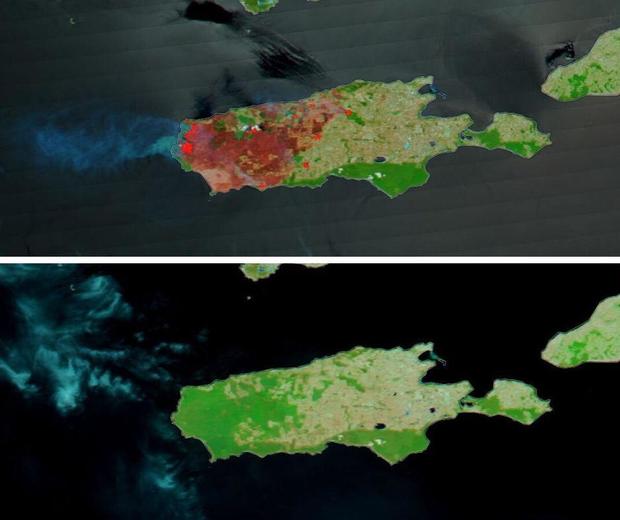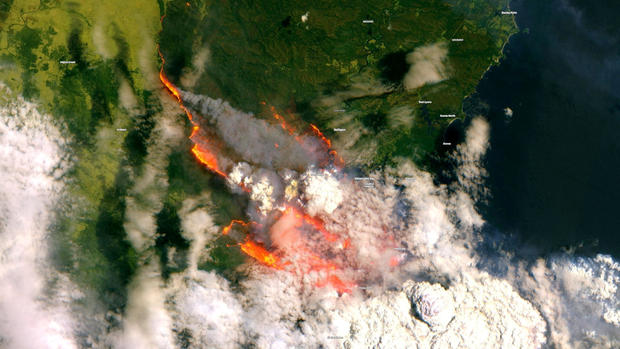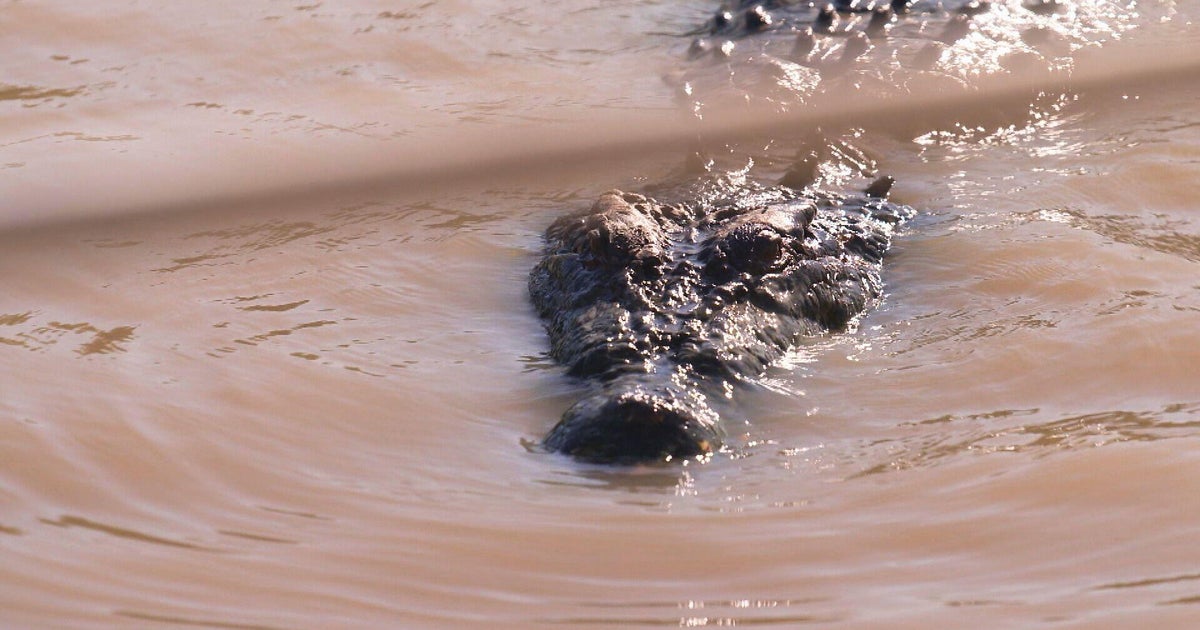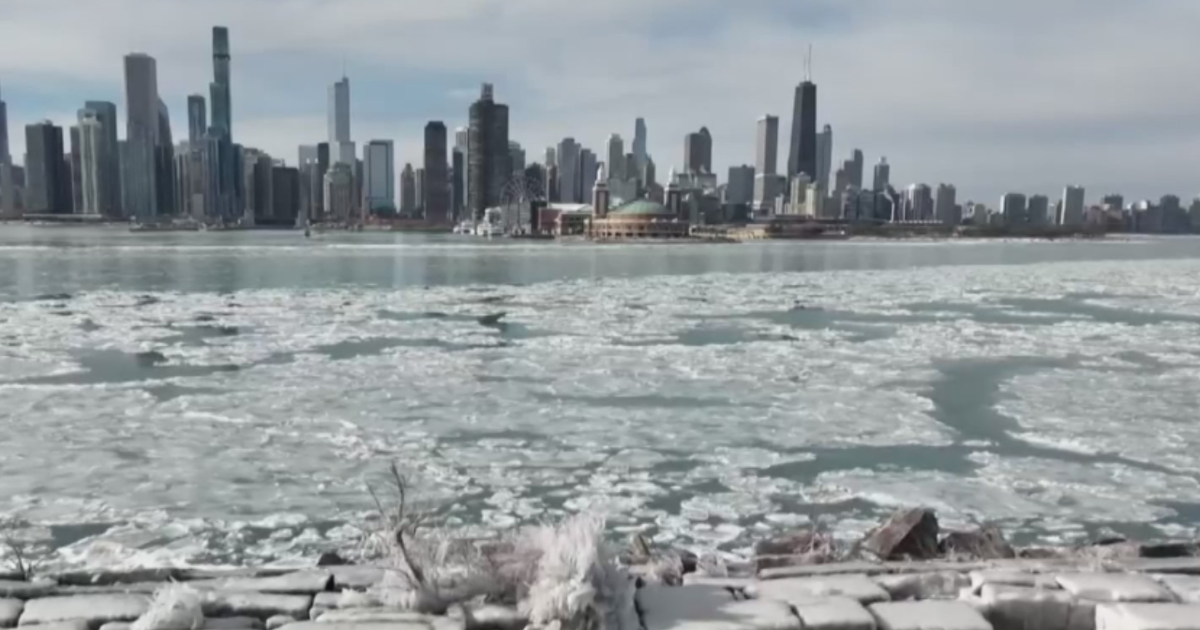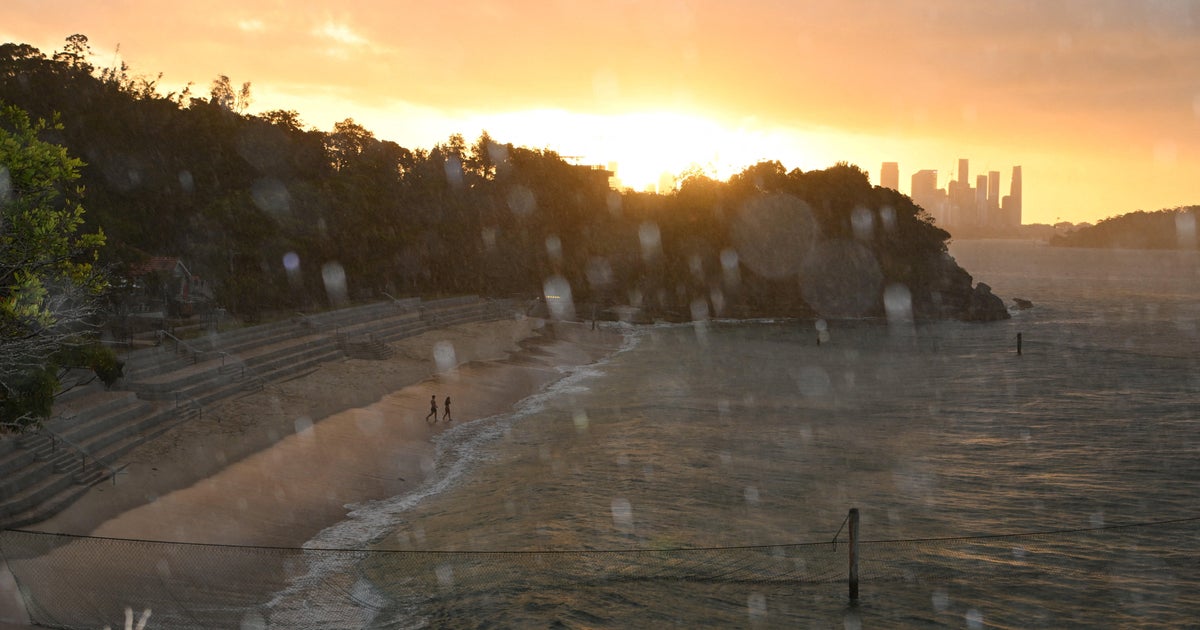NASA images show wildfires have destroyed nearly one third of Australia's Kangaroo Island
New images from NASA illustrate the devastating impact of the wildfires in Australia. Satellite pictures show nearly a third of Kangaroo Island — a former haven for wildlife — scorched by the bushfires.
Kangaroo Island, which is located off the mainland of South Australia, is filled with protected nature reserves that are home to sea lions, koalas, diverse and endangered bird species and many other types of wildlife. However, the fires have damaged a huge portion of the island, as seen in dramatic before and after images released by NASA.
NASA's Terra satellite took a photo of the island on December 16, 2019 (bottom) and another (top) on January 7, 2020. NASA said one-third of the island, over 383,000 acres, shows burn scars and areas that are still burning.
The agency said the bushfires began as lightning strikes within Flinders Chase National Park. With the intense heat and fires currently raging in Australia, parts of the country have been dealing with "pyrocumulonimbus" clouds — weather systems generated by the intense heat of the fires themselves, which bringing little rain but are packed with lightning that can spark new fires.
Experts at Flinders Chase National Park estimate 25,000 koalas have died in the fires, which is half of the population of the animals there. The loss of vegetation and wildlife is a disturbing outcome of the wildfires throughout the country. Overall, more than one billion animals are feared dead in Australia, Chris Dickman, an ecologist at the University of Sydney told CBS News.
Nearly 20 million acres have burned across Australia in recent months, and authorities say the fires could keep burning for months longer. At least 25 people have died and residents of entire towns have been forced to flee their homes.
Dickman said that because Australia often sees the effects of climate change before other parts of the world, these fires could be a preview of what's to come globally.
